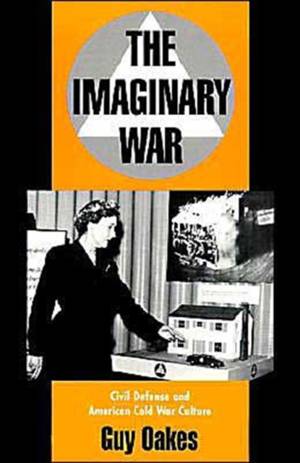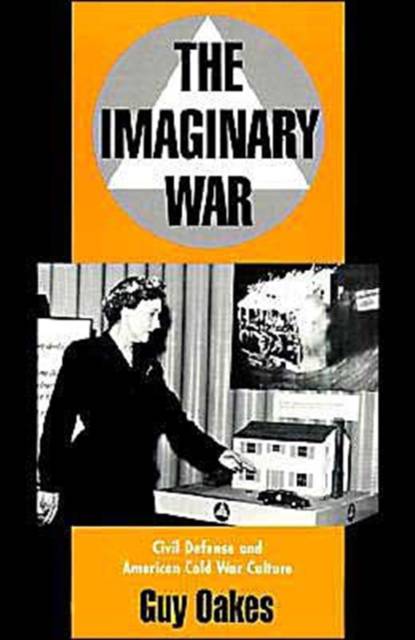
Door een staking bij bpost kan je online bestelling op dit moment iets langer onderweg zijn dan voorzien. Dringend iets nodig? Onze winkels ontvangen jou met open armen!
- Afhalen na 1 uur in een winkel met voorraad
- Gratis thuislevering in België vanaf € 30
- Ruim aanbod met 7 miljoen producten
Door een staking bij bpost kan je online bestelling op dit moment iets langer onderweg zijn dan voorzien. Dringend iets nodig? Onze winkels ontvangen jou met open armen!
- Afhalen na 1 uur in een winkel met voorraad
- Gratis thuislevering in België vanaf € 30
- Ruim aanbod met 7 miljoen producten
Zoeken
€ 271,45
+ 542 punten
Omschrijving
"Duck and cover" are unforgettable words for a generation of Americans, who listened throughout the Cold War to the unescapable propaganda of civil defense. Yet it would have been impossible to protect Americans from a real nuclear attack, and, as Guy Oakes shows in The Imaginary War, national security officials knew it.
The real purpose of 1950's civil defense programs, Oakes contends, was not to protect Americans from the bomb, but to ingrain in them the moral resolve needed to face the hazards of the Cold War. Uncovering the links between national security, civil defense, and civic ethics, Oakes reveals three sides to the civil defense program: a system of emotional management designed to control fear; the fictional construction of a manageable world of nuclear attack; and the production of a Cold War ethic rooted in the mythology of the home, the ultimate sanctuary of American values.
This fascinating analysis of the culture of civil defense and the official mythmaking of the Cold War will be essential reading for all those interested in American history, politics, and culture.
The real purpose of 1950's civil defense programs, Oakes contends, was not to protect Americans from the bomb, but to ingrain in them the moral resolve needed to face the hazards of the Cold War. Uncovering the links between national security, civil defense, and civic ethics, Oakes reveals three sides to the civil defense program: a system of emotional management designed to control fear; the fictional construction of a manageable world of nuclear attack; and the production of a Cold War ethic rooted in the mythology of the home, the ultimate sanctuary of American values.
This fascinating analysis of the culture of civil defense and the official mythmaking of the Cold War will be essential reading for all those interested in American history, politics, and culture.
Specificaties
Betrokkenen
- Auteur(s):
- Uitgeverij:
Inhoud
- Aantal bladzijden:
- 208
- Taal:
- Engels
Eigenschappen
- Productcode (EAN):
- 9780195090277
- Verschijningsdatum:
- 5/01/1995
- Uitvoering:
- Hardcover
- Formaat:
- Genaaid
- Afmetingen:
- 161 mm x 244 mm
- Gewicht:
- 399 g

Alleen bij Standaard Boekhandel
+ 542 punten op je klantenkaart van Standaard Boekhandel
Beoordelingen
We publiceren alleen reviews die voldoen aan de voorwaarden voor reviews. Bekijk onze voorwaarden voor reviews.











